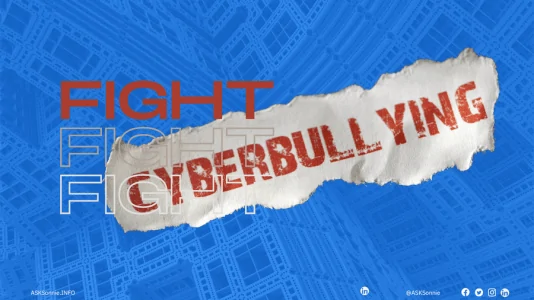Cyberbullying remains one of the most persistent digital threats facing children, families, and communities. Every November, the world unites through UNESCO’s global observance to spotlight violence and bullying—including cyberbullying—and mobilize institutions toward safer digital spaces.
Reference: UNESCO Official Site

Online Violence: Still a Pressing Threat in the Philippines
In the Philippines, the conversation is far from symbolic. With rising reports received by DepEd hotlines, Child Protection Committees, and the Cybercrime.gov.ph portal, digital aggression continues to evolve. This article highlights what sets the collective fight apart: community action, multi-stakeholder collaboration, and practical support systems for children and families.
Why November Matters in the Collective Fight Against Cyberbullying
UNESCO dedicates every first Thursday of November as the International Day Against Violence and Bullying, emphasizing:
- Violence online and offline are interconnected — Digital harm affects academic performance, mental health, and psychosocial well-being.
- Organized community responses work best — Involving parents, schools, tech platforms, civil society, and policymakers.
November gives the Philippines and Southeast Asia a moment to reassess progress, strengthen systems, and realign protective behaviors as digital harms grow more sophisticated.
Where the Philippines Stands Today (2025)
The Philippines strengthened its anti-bullying and cyber wellness programs:
- DepEd’s Child Protection Helpline now proactively handles cyberbullying.
- Reporting to PNP-ACG: Direct online portal and reporting walkthroughs.
- DICT’s Safer Internet Initiatives: Expanded CyberSafe caravans nationwide.
How Netizens Can Protect Themselves: Platform-Specific Guides
- Facebook: Step-by-Step Privacy Guide
- Instagram: Privacy Settings
- X (Twitter): Make X Private / Blocking Guide
- TikTok: Privacy & Parental Controls — Blocking
- Twitch: Reporting/Blocking Guide | Transparency Report (PDF)
- Reddit: Blocking Guide
- Discord: Reporting Guide — Official Portal
General Tips:
- Use privacy settings and blocking tools.
- Avoid responding to aggressors.
- Report using platform and police tools.
- Take screenshots for evidence.
- Deactivate or step back if overwhelmed.
How Parents Can Help
- Provide psychological safety: Encourage open dialogue—don’t punish disclosure.
- Avoid total bans: It increases secrecy; teach, don’t over-restrict.
- Connect online: Stay aware of your child’s digital world.
- Use parental controls wisely: Supportive, not surveillance.
A Collective Fight Needs Collective Action
Real protection happens when multiple layers work together:
- Schools with active Child Protection Committees
- Parents who communicate without judgment
- Tech platforms enforcing safety
- Government agencies upgrading reporting & enforcement
- NGOs and advocates offering training
- Faith & community groups fostering empathy
Regional Action: ASEAN’s Collective Fight and Response
- ASEAN Digital Ministers are advancing regional frameworks on online safety and cybercrime cooperation.
ASEAN Secure Digital Policy (US-ASEAN News) - PH, SG, MY, and ID share cyber enforcement and promote digital citizenship.
- Regional education campaigns build resilience from classrooms to communities.
These efforts align the Philippines with its neighbors in recognizing cyberbullying as both a social and national security concern.
Related ASKSonnie.INFO Resources
ASK Integration: Applying Align–Strengthen–Kickstart
- ALIGN — Ground digital behavior in empathy and shared values.
- STRENGTHEN — Equip communities with digital literacy and emotional intelligence.
- KICKSTART — Practice collective vigilance: report, support, model healthy digital citizenship.
Explore our cornerstone guide:
Cyber Wellness Philippines: Building Safe and Empowered Digital Communities
Frequently Asked Questions
Why is November observed as a global month against cyberbullying?
UNESCO designates every first Thursday of November as the International Day Against Violence and Bullying, including cyberbullying. This observance unites schools, governments, and communities worldwide to strengthen online safety and anti-bullying systems.
What are the key cyberbullying initiatives in the Philippines for 2025?
The Philippines strengthened anti-bullying systems through DepEd’s Child Protection Helpline, updated Anti-Bullying IRR, DICT’s expanded CyberSafe programs, and improved PNP-ACG reporting through Cybercrime.gov.ph.
Where can Filipinos report cyberbullying or online harassment?
You can report through:
- PNP-ACG: Cybercrime.gov.ph
- DepEd Child Protection Helpline for students
- Platform tools (Facebook, TikTok, Instagram, X, Discord, etc.)
How can parents support children experiencing cyberbullying?
Parents can help by creating psychological safety, avoiding punitive reactions, connecting with their child’s digital world, and coordinating with the school’s Child Protection Committee if needed.
What role does ASEAN play in combating cyberbullying?
ASEAN Digital Ministers are expanding regional cooperation on online safety, cybercrime reporting, and digital citizenship training. Collaboration among PH, SG, MY, and ID strengthens cross-border responses to digital harm.





